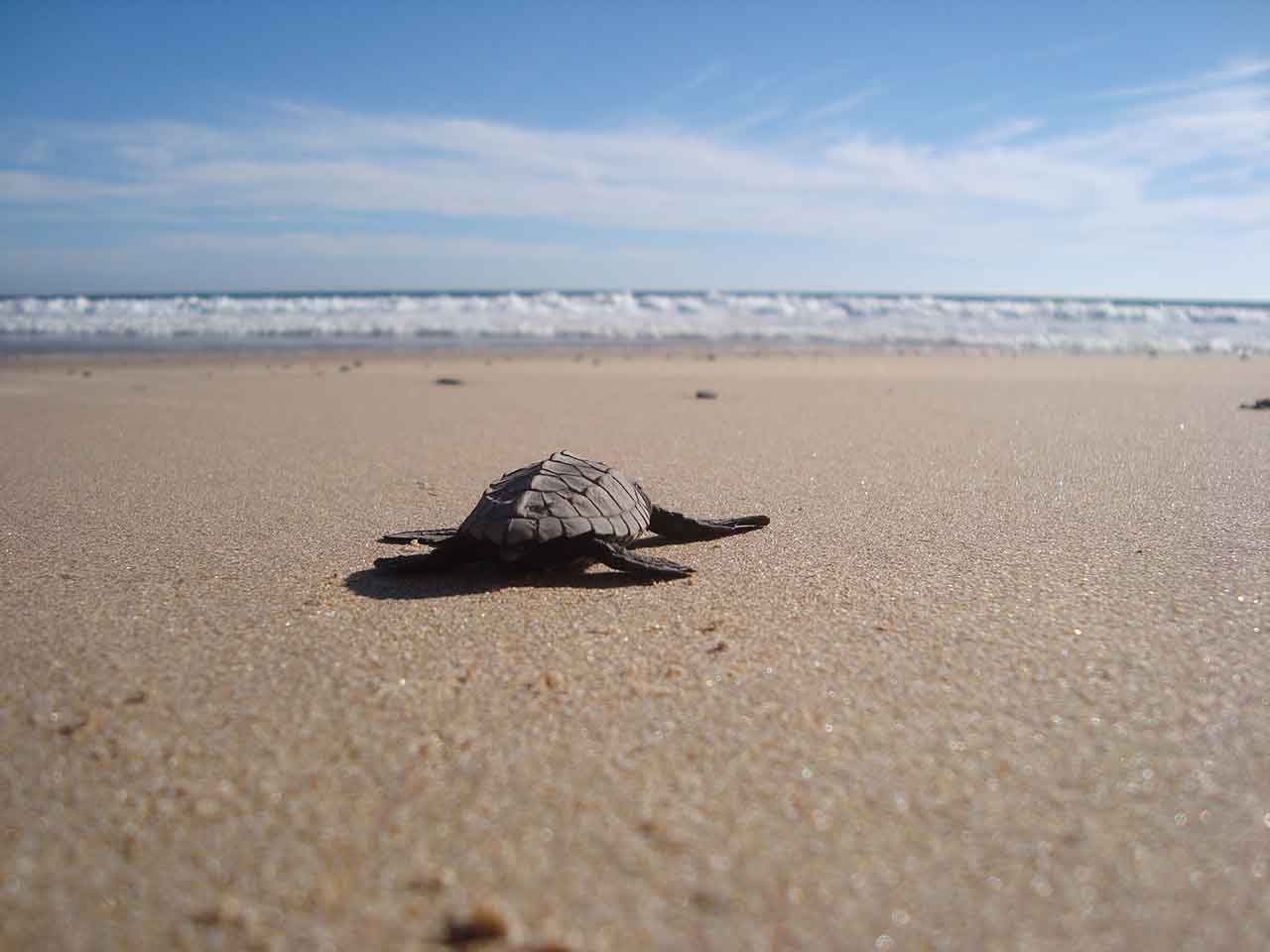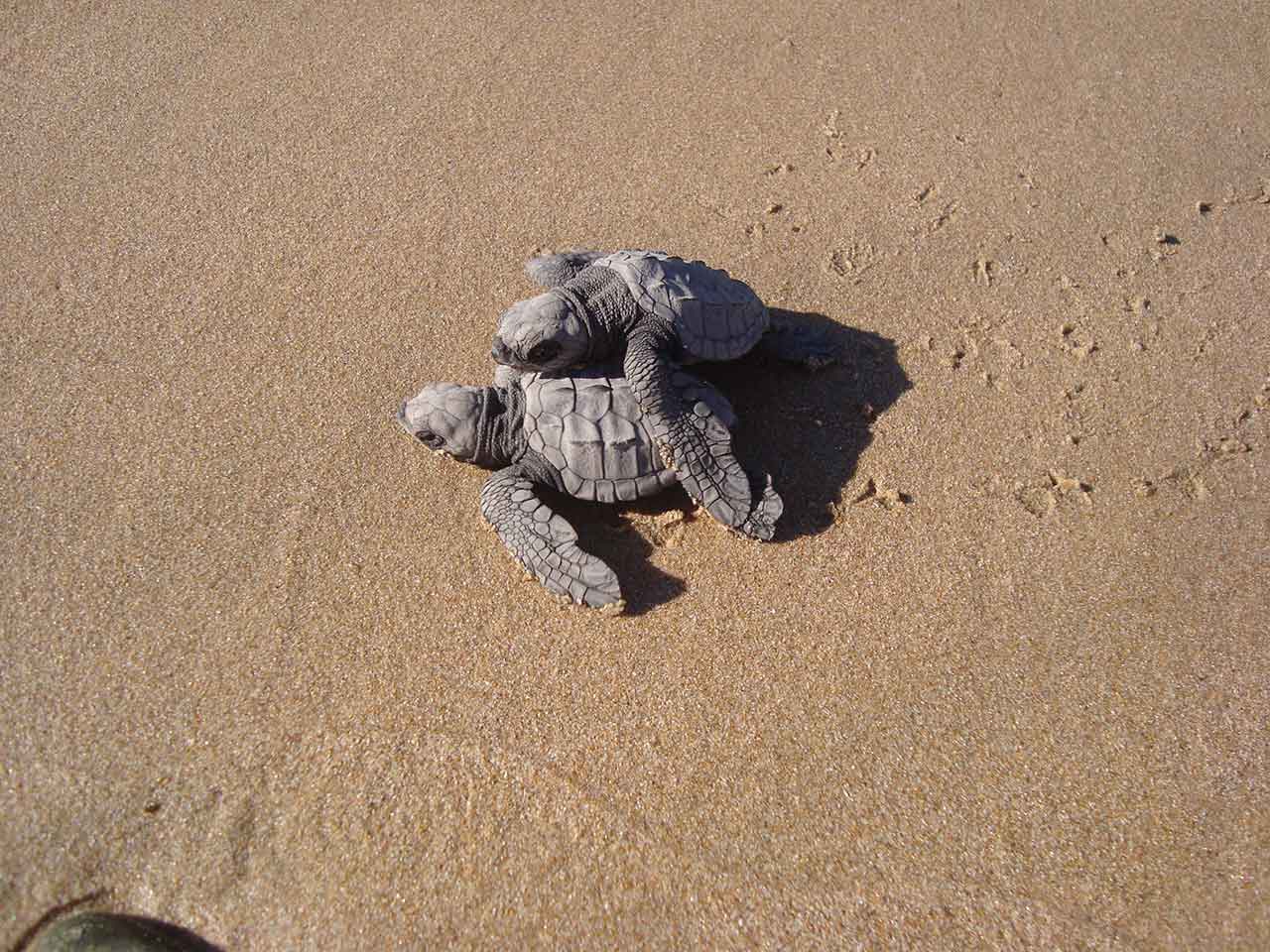Baby Sea Turtles
Sea Turtle Protection Program
Baby Sea Turtles
Sea Turtle Protection Program
Join us in protecting the lives of Sea Turtles and create unforgettable memories with our Sea Turtle Protection Program.
Our program has been a great success over the years, resulting in an increase in the number of turtles arriving each year on our four beaches. During the season, we welcome all of our guests to participate in the two critical action phases of the program: collecting the eggs and later on protecting the newly hatched babies.
This eco-tourism experience is unique to Las Alamandas and is both exciting and fulfilling. Guests get to participate in late-night outings to find the eggs and then protect the babies as they instinctually charge to the safety of the ocean. This experience will provide you with inspiring memories that will last a lifetime.


If you are planning to take part in this experience, you should know that the first mother turtles start arriving in summer and keep coming through the end of the year, at times as late as January. They dig nests in the sand, settle in to lay their eggs and then return to the sea. Six to eight weeks later, the baby turtles hatch.
The best time for egg collection is late at night, generally between 10:00 pm and 2:00 am. Our guests are invited to join our staff on these search expeditions to find and dig up the newly deposited ovum. After that, we keep the eggs in a container filled with sand to mimic the natural nest and watch over them until they hatch. Once the babies are ready, we release them safely into the sea.
At Las Alamandas, the birth of baby sea turtles is a time of celebration. Our guests join the staff on the beach, get to meet and hold them and protect them from predators before wishing them a bon voyage as they swim off on the great adventure of life.
The more baby turtles we protect, the more we can expect to return to Las Alamandas in the future. This experience is suitable for all ages, so don’t miss out on this life-enhancing experience!

Our program has been a great success over the years, resulting in an increase in the number of turtles arriving each year on our four beaches. During the season, we welcome all of our guests to participate in the two critical action phases of the program: collecting the eggs and later on protecting the newly hatched babies.
This eco-tourism experience is unique to Las Alamandas and is both exciting and fulfilling. Guests get to participate in late-night outings to find the eggs and then protect the babies as they instinctually charge to the safety of the ocean. This experience will provide you with inspiring memories that will last a lifetime.
At Las Alamandas, the birth of baby sea turtles is a time of celebration. Our guests join the staff on the beach, get to meet and hold them and protect them from predators before wishing them a bon voyage as they swim off on the great adventure of life.
The more baby turtles we protect, the more we can expect to return to Las Alamandas in the future. This experience is suitable for all ages, so don’t miss out on this life-enhancing experience!
If you are planning to take part in this experience, you should know that the first mother turtles start arriving in summer and keep coming through the end of the year, at times as late as January. They dig nests in the sand, settle in to lay their eggs and then return to the sea. Six to eight weeks later, the baby turtles hatch.
The best time for egg collection is late at night, generally between 10:00 pm and 2:00 am. Our guests are invited to join our staff on these search expeditions to find and dig up the newly deposited ovum. After that, we keep the eggs in a container filled with sand to mimic the natural nest and watch over them until they hatch. Once the babies are ready, we release them safely into the sea.




